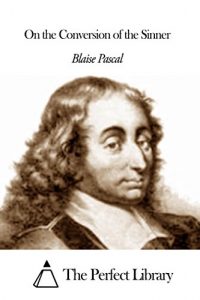Blaise Pascal, 19 June 1623 – 19 August 1662), was a French mathematician, physicist, inventor, writer and Catholic philosopher. He was a child prodigy who was educated by his father, a tax collector in Rouen. Pascal's earliest work was in the natural and applied sciences where he made important contributions to the study of fluids, and clarified the concepts of pressure and vacuum by generalizing the work of Evangelista Torricelli. Pascal also wrote in defense of the scientific method.
In 1642, while still a teenager, he started some pioneering work on calculating machines, and after three years of effort and 50 prototypes he invented the mechanical calculator. He built twenty of these machines (called pascal's calculator and later pascaline) in the following ten years. Pascal was an important mathematician, helping create two major new areas of research: he wrote a significant treatise on the subject of projective geometry at the age of sixteen, and later corresponded with Pierre de Fermat on probability theory, strongly influencing the development of modern economics and social science. Following Galileo and Torricelli, in 1646 he refuted Aristotle's followers who insisted that nature abhors a vacuum. Pascal's results caused many disputes before being accepted.
In 1646, he and his sister Jacqueline identified with the religious movement within Catholicism known by its detractors as Jansenism. His father died in 1651. Following a mystical experience in late 1654, he had his "second conversion", abandoned his scientific work, and devoted himself to philosophy and theology. His two most famous works date from this period: the Lettres provinciales and the Pensées, the former set in the conflict between Jansenists and Jesuits. In this year, he also wrote an important treatise on the arithmetical triangle. Between 1658 and 1659 he wrote on the cycloid and its use in calculating the volume of solids.
Pascal had poor health especially after his eighteenth year and his death came just two months after his 39th birthday.
Pascal's most influential theological work, referred to posthumously as the Pensées ("Thoughts"), was not completed before his death. It was to have been a sustained and coherent examination and defense of the Christian faith, with the original title Apologie de la religion Chrétienne ("Defense of the Christian Religion"). The first version of the numerous scraps of paper found after his death appeared in print as a book in 1669 titled Pensées de M. Pascal sur la religion, et sur quelques autres sujets ("Thoughts of M. Pascal on religion, and on some other subjects") and soon thereafter became a classic. One of the Apologie's main strategies was to use the contradictory philosophies of skepticism and stoicism, personalized by Montaigne on one hand, and Epictetus on the other, in order to bring the unbeliever to such despair and confusion that he would embrace God.
In 1642, while still a teenager, he started some pioneering work on calculating machines, and after three years of effort and 50 prototypes he invented the mechanical calculator. He built twenty of these machines (called pascal's calculator and later pascaline) in the following ten years. Pascal was an important mathematician, helping create two major new areas of research: he wrote a significant treatise on the subject of projective geometry at the age of sixteen, and later corresponded with Pierre de Fermat on probability theory, strongly influencing the development of modern economics and social science. Following Galileo and Torricelli, in 1646 he refuted Aristotle's followers who insisted that nature abhors a vacuum. Pascal's results caused many disputes before being accepted.
In 1646, he and his sister Jacqueline identified with the religious movement within Catholicism known by its detractors as Jansenism. His father died in 1651. Following a mystical experience in late 1654, he had his "second conversion", abandoned his scientific work, and devoted himself to philosophy and theology. His two most famous works date from this period: the Lettres provinciales and the Pensées, the former set in the conflict between Jansenists and Jesuits. In this year, he also wrote an important treatise on the arithmetical triangle. Between 1658 and 1659 he wrote on the cycloid and its use in calculating the volume of solids.
Pascal had poor health especially after his eighteenth year and his death came just two months after his 39th birthday.
Pascal's most influential theological work, referred to posthumously as the Pensées ("Thoughts"), was not completed before his death. It was to have been a sustained and coherent examination and defense of the Christian faith, with the original title Apologie de la religion Chrétienne ("Defense of the Christian Religion"). The first version of the numerous scraps of paper found after his death appeared in print as a book in 1669 titled Pensées de M. Pascal sur la religion, et sur quelques autres sujets ("Thoughts of M. Pascal on religion, and on some other subjects") and soon thereafter became a classic. One of the Apologie's main strategies was to use the contradictory philosophies of skepticism and stoicism, personalized by Montaigne on one hand, and Epictetus on the other, in order to bring the unbeliever to such despair and confusion that he would embrace God.












